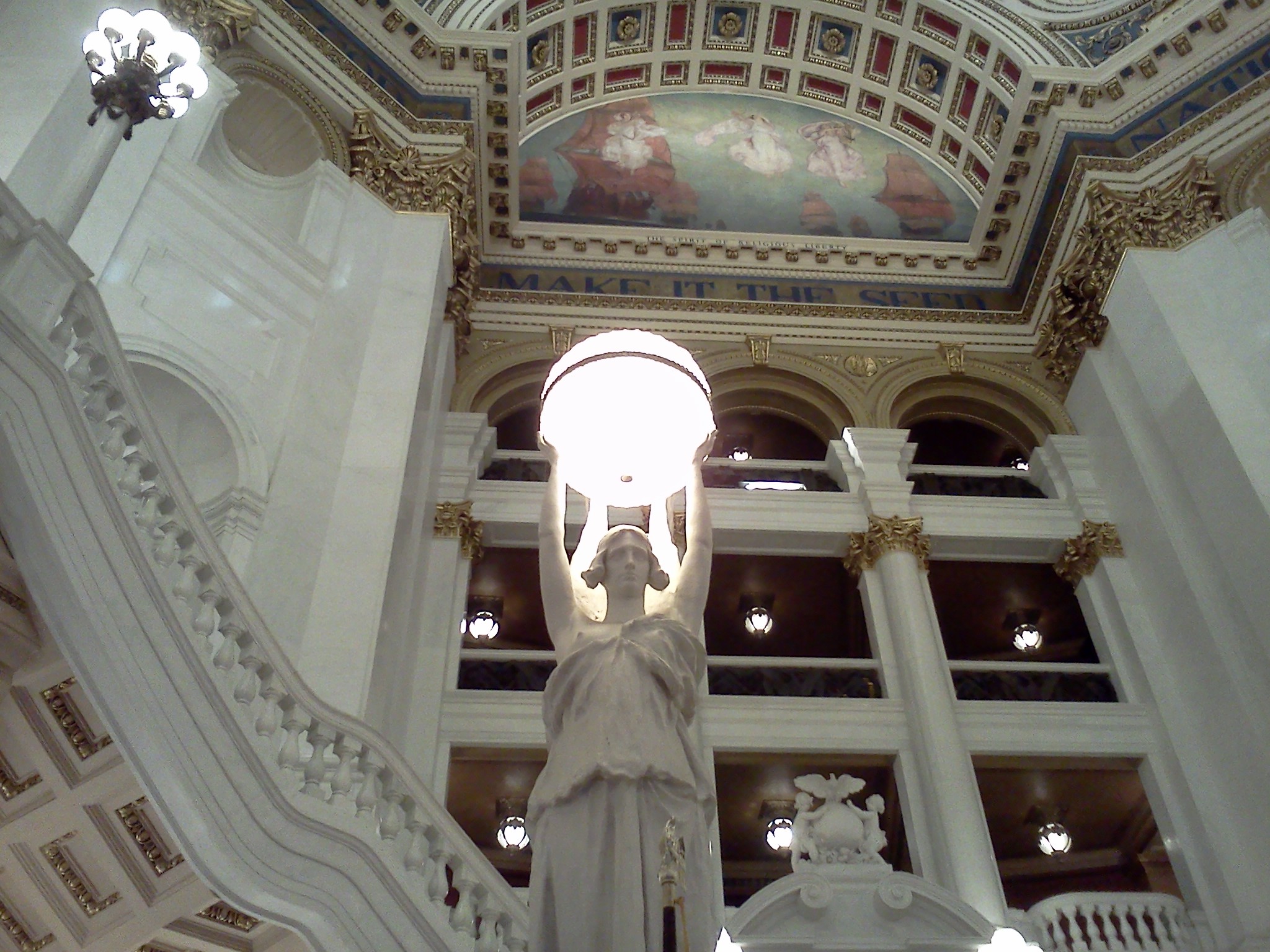Posts
Governor Tom Corbett Answers More Listener Email
/in Ask the Governor, Media, News, Video /by PAMattersGovernor Tom Corbett on the Future of Property Tax Reform in PA
/in Ask the Governor, Media, News, Video /by PAMattersGovernor Tom Corbett Updates Transportation Funding
/in Ask the Governor, Media, News, Video /by PAMattersGovernor Tom Corbett on the Pension Reform Debate
/in Ask the Governor, Media, News, Video /by PAMattersGov’s Tax Reform Plan under the Microscope
/in News /by PAMattersThe Corbett administration believes the price of doing business in Pennsylvania is too high. So they plan to finally eliminate the capital stock & franchise tax as of January, and want to gradually reduce the state’s corporate net income tax from 9.99% – 6.99% over the next 12-years.
“Governor Corbett’s broad-based tax reform proposal sets the stage for robust economic growth by developing a competitive business tax structure, as well as improving the process of collecting taxes and simplifying the tax code,” Revenue Secretary Dan Meuser told the House Finance Committee on Thursday.
But minority chair Phyllis Mundy (D-Luzerne) told Meuser there’s one glaring omission: the plan does not close corporate tax loopholes, like the Delaware Loophole. Mundy is the prime sponsor of legislation that would do that via combined reporting, but Meuser suggests it would do more harm than good.
Mundy also points out that the corporate tax breaks proffered by the administration would result in an $800-million dollar annual loss to state tax revenues when fully implemented. “And I’m not at all sure – I wish I could believe – that these tax cuts for large corporations would result in enough job creation to overcome that deficit,” she says.
Meuser, however, says the economic growth spurred by the governor’s tax plan will mean $1-billion dollars in new state tax revenue by 2030. “That comes from personal income growth, that comes from employment and that comes from sales tax revenues that are derived from those who are now working that weren’t before.”
The state has the 2nd highest corporate net income tax in the nation and is one of only a few states that tax both business income and assets, in that the capital stock & franchise tax is a levy against a business’s assets regardless of whether it made money or not.
The Corbett Tax Plan would also raise the cap on net operating loss deductions, allow for start-up business deductions, repeal the corporate loans tax and eliminate what Meuser describes as “nuisance taxes.”
But everything is subject to the approval of the General Assembly, and as members of the Finance Committee exited Thursday’s hearing they surely noticed the protesters in the capitol rotunda who rallied against the Corbett plan and argued that corporate tax breaks do not create jobs.
Should Family Businesses Pay the “Death Tax”?
/in News /by PAMattersFamily farms are now exempt from the Pennsylvania inheritance tax under a new state law enacted last year. Now there appears to be bipartisan support for doing the same thing for family businesses. “When we tax these assets in a small business… at the death of one of the principle owners, oftentimes what happens… is critical business assets have to be liquidated in order to pay the tax bill,” explains state Rep. Stephen Bloom (R-Cumberland), the prime sponsor of a bill to eliminate the so-called death tax on mom & pop shops.
Bloom’s bill has already advanced out of the House Finance Committee with a vote of 20 – 4, and has since been re-referred to the Appropriations Committee.
While the bill would nix close to $10-million dollars in state revenue, Bloom believes the economic activity it would create can more than make up for the cost. “We want to reward our folks who’ve been frugal and generated assets and are growing jobs in this state we don’t want to punish them.”
Opponents have several complaints in addition to the lack of offsetting revenue. The Pennsylvania Budget & Policy Center believes the bill would create a new set of inequities and loopholes, thereby shifting more of the state’s tax burden onto middle-class families.
The House has recessed for three weeks of budget hearings. Session is scheduled to resume on March 11th.
Welcome to PAMatters.com, a new source for news and commentary from Pennsylvania’s capital. In addition to video, audio and pictures from the stories and events that affect YOU, you’ll also get some behind-the-scenes analysis via blogs from our award-winning staff of journalists.




